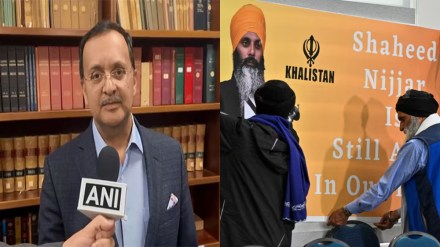Persistent allegations by ex-Canadian Prime Minister Justin Trudeau over India’s alleged role in the killing of Khalistani separatist Hardeep Nijjar in 2023 in Canada had severely strained India-Canada ties, which are now only recovering due to current Canadian Prime Minister Mark Carney’s efforts.
While India has repeatedly denied any involvement in the matter, the controversy has not entirely died down.
Reflecting on India’s stance, India’s High Commissioner to Canada, Dinesh Patnaik, told CBC News in a recent interview how India has provided intelligence to Canada on purported anti-Indian activities on Canadian soil, which are brushed aside due to a perceived ‘lack of substantial evidence’.
“India makes accusations about anti-Indian activities within Canada too. We give Canada evidence but we are told this is not enough. We believe you at face value. Canada should believe India too. India was not involved in the Hardeep Nijjar case,” Patnaik told the interviewer.
Who was Hardeep Nijjar and how did he die?
Nijjar, born in India in 1977, was a leader in the Khalistan Tiger Force (KTF), a group banned in India and designated by the Indian government as a terrorist organisation. He was also closely associated with Sikhs for Justice (SFJ).
Nijjar was accused by Indian authorities of militant activities and involvement in violent acts in Punjab, which he and his supporters denied, insisting he advocated peaceful means for Khalistan. On June 18, 2023, he was fatally shot outside a Sikh temple in Surrey, Canada.
Nijjar killing: What did Canadian probe find?
Four alleged hitmen, identified as Karan Brar, Kamalpreet Singh, Karanpreet Singh and Amandeep Singh, all Indian nationals who arrived in Canada several years ago, were accused of carrying out the killing, according to the Royal Canadian Mounted Police (RCMP).
The accused had arrived in Canada on temporary visas, sources said, including some on student visas, CBC news had earlier reported quoting sources.
Impact of India-Canada’s past row amid Nijjar claims
Trudeau’s claims had triggered a massive diplomatic row between the two countries, which led to Canada expelling an Indian diplomat and subsequent reciprocal measures taken by India.
Where do India-Canada ties stand now?
Following Carney’s election, things have taken a positive turn. In October, foreign ministers from both countries met in Delhi and agreed on a new roadmap aimed at restoring momentum in bilateral relations, focusing on economic collaboration including critical minerals, trade diversification, agriculture, and emerging technologies like AI and cybersecurity, according to the Ministry of External Affairs (MEA).
Most recently, India announced a trilateral framework with Australia and Canada, called the Australia-Canada-India Technology and Innovation (ACITI) Partnership to enhance cooperation in critical and emerging technologies on the side lines of the G20 summit in South Africa.
